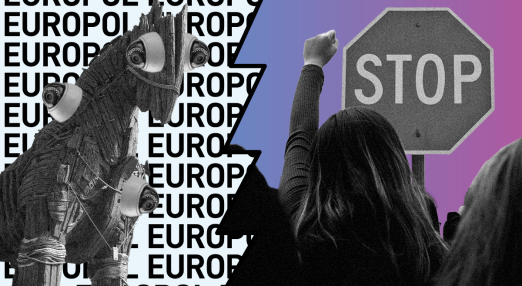Privacy and data protection
Privacy and data protection are essential for us to live, connect, work, create, organise and more. Governments and companies have long used mass surveillance for control trying to legitimise snooping for health, security or other reasons. The near-total digitisation of our lives has made it easier to control, profile and profit from our attention, data, bodies and behaviours in ways that are very difficult for us to understand and challenge. European data protection standards such as the GDPR are a good step forward but we need more to effectively ensure enforcement and protection against unlawful surveillance practices.
Filter resources
-

EDRi-gram, 16 April 2025
What has the EDRis network been up to over the past two weeks? Find out the latest digital rights news in our bi-weekly newsletter. In this edition: Challenging data retention regime in Poland, Ljubljana’s municipal surveillance, and more!
Read more
-

Ljubljana’s municipal surveillance: Where trust trumps data
During a Ljubljana municipal council debate on CCTV transparency, several concerning points were raised regarding the Slovenian capital's network of over 500 surveillance cameras and the methods employed to assess their effectiveness in preventing crime. The discussion revealed that the entire system relies heavily on trust in the authorities, without any substantial data to support the cameras' effectiveness or a clear rationale for their widespread deployment.
Read more
-

Avoiding regulation of biometric surveillance and loyalty applications: The 20th Big Brother Awards took place in the Czech Republic
For the twentieth time, the Czech organization and EDRi member IuRe (Iuridicum Remedium) awarded prizes to the greatest snoopers.
Read more
-

Panoptykon Foundation challenges the data retention regime in Poland: Telecom companies requested to delete activists’ data
EDRi member Panoptykon Foundation supports activists and attorney-at-law Artur Kula to demand that the four biggest telecom companies in Poland delete data stored for the purpose of law enforcement in the 12 months prior. They want to challenge the current unlawful data retention regime in Poland.
Read more
-

CJEU saved the HADOPI: what implications for the future of data retention in the EU?
The Court of Justice of the European Union judgement on the HADOPI case (C-470/21) is significant for the ongoing debate on mandatory retention of metadata, such as traffic and location data. EDRi provides key takeaways and what they mean for the upcoming data retention legislation by the European Commission.
Read more
-

EDRi-gram, 2 April 2025
What has the EDRis network been up to over the past two weeks? Find out the latest digital rights news in our bi-weekly newsletter. In this edition: DSA complaint X, New civic coalition for journalists and civil society, imagining EU-topia, & more!
Read more
-

When data never dies: How better GDPR enforcement could minimise hate and harm
Lax enforcement of the GDPR has had far-reaching consequences for many people and collectives in the EU, especially those most vulnerable. Through a story based on real life experiences of people, this blog highlights the gap between the GDPR’s promise of protection and its current reality of weak enforcement, and the opportunity EU lawmakers have with the ongoing GDPR Procedural Regulations to take bold steps to protect our data rights.
Read more
-

The Security Playbook
EDRi affiliate SUPERRR is challenging “Security Theater” as a societal maneuver.
Read more
-

Surveilling Europe’s edges: when research legitimises border violence
In May 2024, EDRi member Access Now’s Caterina Rodelli travelled across Greece to meet with local civil society organisations supporting migrant people and monitoring human rights violations, and to see first-hand how and where surveillance technologies are deployed at Europe’s borders.
Read more
-

Stop Europol’s Trojan Horse: 168 organisations and experts call to reject “insidious” police powers expansion
ProtectNotSurveil, of which EDRi is a member, published today a joint statement by 168 organisations and experts calling for the rejection of the Europol Regulation and to amend the proposed Facilitation Directive. The so-called ‘Facilitators Package’ would expand surveillance measures, erode the right to seek asylum and criminalise human movement.
Read more
-

EDRi-gram, 5 March 2025
What has the EDRis network been up to over the past two weeks? Find out the latest digital rights news in our bi-weekly newsletter. In this edition: Our call to reject the Europol reform, UK and France launch fresh attacks on encryption, & more!
Read more
-

Apple and the long secret arm of the UK Government
Apple disabled their 'advanced data protection' service for UK customers following a secret UK Government order demanding access to global user data. EDRi member Privacy International criticises this weakening of security standards for users in the United Kingdom.
Read more
